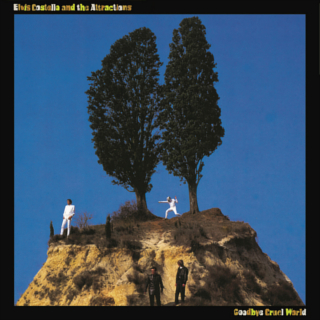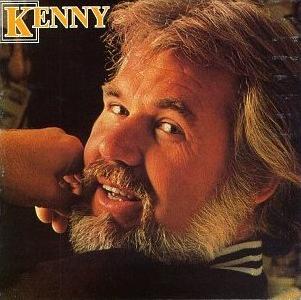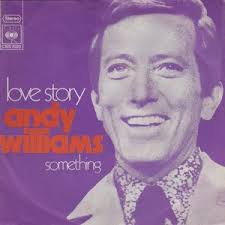
Joe South was an American singer-songwriter, guitarist, and record producer. Best known for his songwriting, South won the Grammy Award for Song of the Year in 1970 for "Games People Play" and was again nominated for the award in 1972 for "Rose Garden".
Jane Olivor is an American singer. After releasing five albums from the late 1970s through the early 1980s, her stage fright, anxiety over her rapid success, and her husband's illness and death caused her to take a 10-year hiatus. She released five more albums from 1995 through 2004. Since 2009, she has been retired from the public eye.

Goodbye Yellow Brick Road is the seventh studio album by English singer-songwriter Elton John, first released on 5 October 1973 as a double LP. The album has sold more than 20 million copies worldwide and is widely regarded as John's magnum opus. Among the 17 tracks, the album contains the hits "Candle in the Wind", US number-one single "Bennie and the Jets", "Goodbye Yellow Brick Road" and "Saturday Night's Alright for Fighting" plus live favourites "Funeral for a Friend/Love Lies Bleeding" and "Harmony".

"Running Scared" is a song written by Roy Orbison and Joe Melson and sung by Orbison. An operatic rock ballad, the recording of the song was overseen by audio engineer Bill Porter and released as a 45 rpm single by Monument Records in March 1961 and went to number one on the Billboard Hot 100 chart. "Running Scared" also reached No.9 in the UK Singles Chart. It sold over one million copies in the US alone. The song was included on Orbison's 1962 album Crying as the final track on the album.

Tribe is a 1987 solo album by Bernie Taupin issued by RCA Records. The album includes the two singles, "Friend of the Flag" and "Citizen Jane". Music videos were made for both singles.

Goodbye Cruel World is the ninth studio album by English singer-songwriter Elvis Costello, and his eighth with the Attractions—keyboardist Steve Nieve, bassist Bruce Thomas and drummer Pete Thomas. It was released on 18 June 1984 through F-Beat Records in the United Kingdom and Columbia Records in the United States. It was produced by Clive Langer and Alan Winstanley, who returned from 1983's Punch the Clock. Recorded at London's Sarm West Studios in March 1984 during a period of turmoil for the artist, the problematic sessions included disagreements between Costello and the producers over the album's direction and high tensions amongst the Attractions.

Kenny is the eighth studio album by Kenny Rogers, released in 1979. It includes the singles "Coward of the County" and "You Decorated My Life."

"Baby, Please Don't Go" is a traditional blues song that was popularized by Delta blues musician Big Joe Williams in 1935. Many cover versions followed, leading to its description as "one of the most played, arranged, and rearranged pieces in blues history" by French music historian Gérard Herzhaft.
"He's So Fine" is a song written by Ronnie Mack. It was recorded by The Chiffons who topped the Billboard Hot 100 for four weeks in the spring of 1963. One of the most instantly recognizable golden oldies with its doo-lang doo-lang doo-lang background vocal, "He's So Fine" is also renowned as the plaintiff song in the famous plagiarism case against George Harrison's "My Sweet Lord".

"(Where Do I Begin?) Love Story" is a popular song published in 1970, with music by Francis Lai and lyrics by Carl Sigman. The song was first introduced as an instrumental theme in the 1970 film Love Story after the film's distributor, Paramount Pictures, rejected the first set of lyrics that were written. Andy Williams eventually recorded the new lyrics and took the song to number nine on Billboard magazine's Hot 100 and number one on their Easy Listening chart.

Let Me Be There is the third studio album by British-Australian singer Olivia Newton-John. It was originally released in November 1973 as Music Makes My Day in the United Kingdom, by Pye International Records, and shortly after in Australia as Let Me Be There, which became its most recognizable name. In the United States and Canada, Let Me Be There was released with an alternative tracklist, combining songs from the original release with other tracks from Newton-John's previous albums If Not for You and Olivia.

"Judy's Turn to Cry" is a song written by Beverly Ross and Edna Lewis that was originally released by Lesley Gore in 1963. The song is the sequel to Gore's prior hit "It's My Party", and both songs were produced by Quincy Jones. It was released on Gore's first album I'll Cry If I Want To and also as a single which reached No. 5 on the Billboard Hot 100 chart and No. 10 on the Billboard R&B singles chart. The single earned a gold record.

If Not for You is the debut studio album by British-Australian singer-songwriter Olivia Newton-John, released in November 1971 by Festival Records. The album was released on the Pye International label in the UK as Olivia Newton-John, with a slightly different cover. As a covers album, If Not for You features mostly songs previously recorded from contemporary artists of the 1960s and early 1970s. She made several performances to promote If Not for You and her follow-up album, Olivia, including an international tour with British singer Cliff Richard. It was her first album released by Festival Records, which would release all her albums in Australia until its dissolution in 2005. It also has Newton-John's first works with her long-time musical partner, John Farrar.
"I Just Want to Celebrate" is a song recorded by American rock band Rare Earth. It was the lead single on their 1971 album One World and was the band's fifth single overall.
"A Long and Lasting Love" is a song written by Gerry Goffin and Michael Masser and first recorded by Jane Olivor on her 1980 album, The Best Side of Goodbye. The following year Billy Preston and Syreeta recorded it on their 1981 album, Billy Preston & Syreeta. The song is best known from the cover recorded by American country music artist Crystal Gayle. It was released in August 1985 as the second single from the album Nobody Wants to Be Alone. The song reached number 5 on the Billboard Hot Country Singles & Tracks chart.

I'll Buy You a Star is an album by American pop singer Johnny Mathis that was released on February 27, 1961 by Columbia Records and was the first of two album collaborations with arranger and conductor Nelson Riddle. This LP includes both ballads and swinging uptempo material throughout a mix of songs that range from the new to the familiar and obscure.

Portrait of Johnny is a compilation album by Johnny Mathis that was released by Columbia Records on July 17, 1961, and described on the cover as "The Third in the Johnny Mathis Greatest Hits Series". Seven B-sides of chart hits are included along with four of the corresponding A-sides that made it onto the Billboard Hot 100 or "bubbled under" it and one song from a single that had neither side chart in Billboard magazine.
"Rose Garden" is a song written in 1967 by American singer-songwriter Joe South. It was first recorded by Billy Joe Royal on his 1967 studio album Billy Joe Royal Featuring "Hush". Versions by South himself and Dobie Gray appeared shortly after the original. Gray's version became a minor hit in North America in 1969.

Hold Me, Thrill Me, Kiss Me is an album by American pop singer Johnny Mathis that was released on August 15, 1977, by Columbia Records and found him firmly planted in the cover album genre once again in that no original songs were included. Allmusic's Joe Viglione did feel, however, that "they seem to be trying to cover all the bases here," meaning that it had a variety of selections, including a standard from 1939, a hit that charted in both the 1950s and '60s, a country crossover, and recent offerings from stage and screen.
"Another Place, Another Time" is a song written by Jerry Chesnut and originally recorded by Del Reeves.














